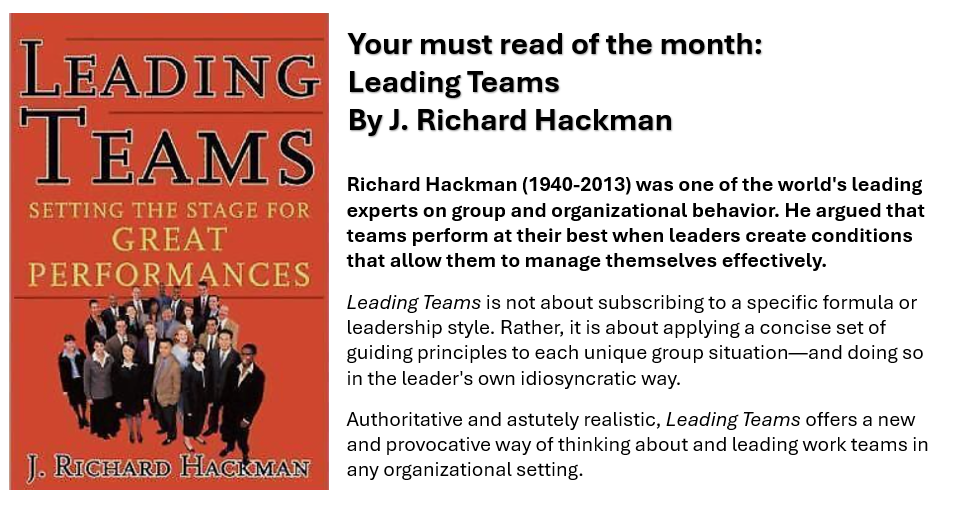In his critically acclaimed book, “Leading Teams,” J. Richard Hackman outlines the fundamental prerequisites for a tech exec to build effective teams. These essential conditions form the bedrock upon which cohesive and successful teams are built. In today’s fast-paced and constantly evolving tech industry, it is crucial for executives to understand and implement these principles in order to create high-performing teams.
A team must have a clear understanding of their goals, objectives, and purpose. As a tech executive, it is your responsibility to clearly communicate the company’s vision and strategy to your team. This will not only give them a sense of purpose but also provide them with a framework for making decisions and guiding their actions.
Hackman makes clear that in order to have an effective team you must ensure:
Teams must be real. People have to know who is on the team and who is not. It’s the leader’s job to make that clear.
Teams need a compelling direction. Members must know and agree on their collective goals. Without clear direction from a leader, there is a risk of divergent agendas.
Teams need enabling structures. With poorly designed tasks, incorrect members, or unclear norms of conduct often encounter trouble.
Teams need a supportive organization. The organizational context – including the reward system, the human resource system, and the information system – must facilitate teamwork.
Teams need expert coaching. Executive coaches often neglect team dynamics, hindering teamwork improvement. Teams need collective coaching to enhance processes, especially at project onset, midpoint, and completion.
As a leader, your success depends on your team’s success. Clear procedures are crucial for achieving this. When everyone understands their roles and responsibilities, it significantly improves performance. Emphasizing teamwork and effective procedures greatly contributes to your success.
Click here for a post on CIO leadership expectations.
Click here to see more about J Richard Hackman and his work at Scholars at Harvard.





